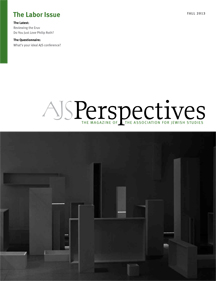Dear Colleagues,
Of late, the inseparability of higher education and the economy has become glaringly clear. This was ever the case, but the very idea of an ivory tower set above financial transactions has been shattered. In its place, a new reality has set in. Professors are expected to fundraise and bring in revenue. Upper administrators often conduct their business like CEOs and receive commensurate salaries. Consultants who advise universities how to behave more like corporations march through and receive considerable portions of the budget. And, as the administration swells and the faculty shrinks, the dichotomy between management and labor becomes increasingly relevant to academe.
This juncture where academics find themselves on one side or the other of the management-labor divide warrants the exploration of academic labor. How is our work valued? In what ways is our labor exploited? How does our work participate in systems of exploitation? How can we represent what we do as valuable in a world increasingly defined by the market? Should we even make such arguments or should we try to safeguard the university from the pressures of consumerism?
Behind these questions rests the fact of a reduced number of academic positions. With universities increasingly relying on the labor of adjunct professors, graduates of doctoral programs can no longer expect a tenure-track position awaiting them. The salaries of adjunct positions, which provide little job security, can bring a family beneath the poverty line and provide little time for the pursuit of a research program. It can also prove difficult to move from a contingent to a tenure-track position. The diminishing number of tenure-track positions also means that permanent faculty members bear an increased amount of administrative duties matched by new demands for accountability and standardization. Whatever side of the management-labor divide academics find themselves, much of their labor bears little resemblance to their training.
Although the articles in this issue do not directly address the contemporary state of academic labor, they do explore labor from multiple angles of Jewish Studies. As laborers in the field of Jewish Studies, the treatment of Jewish labor throughout the ages surely pertains to our present state. We bring such questions to the forefront through articles about individual and collective work in a wide range of places and times and hope that our work on this issue yields pleasure for our readers.
Matti Bunzl
University of Illinois at Urbana-Champaign
Rachel Havrelock
University of Illinois at Chicago

